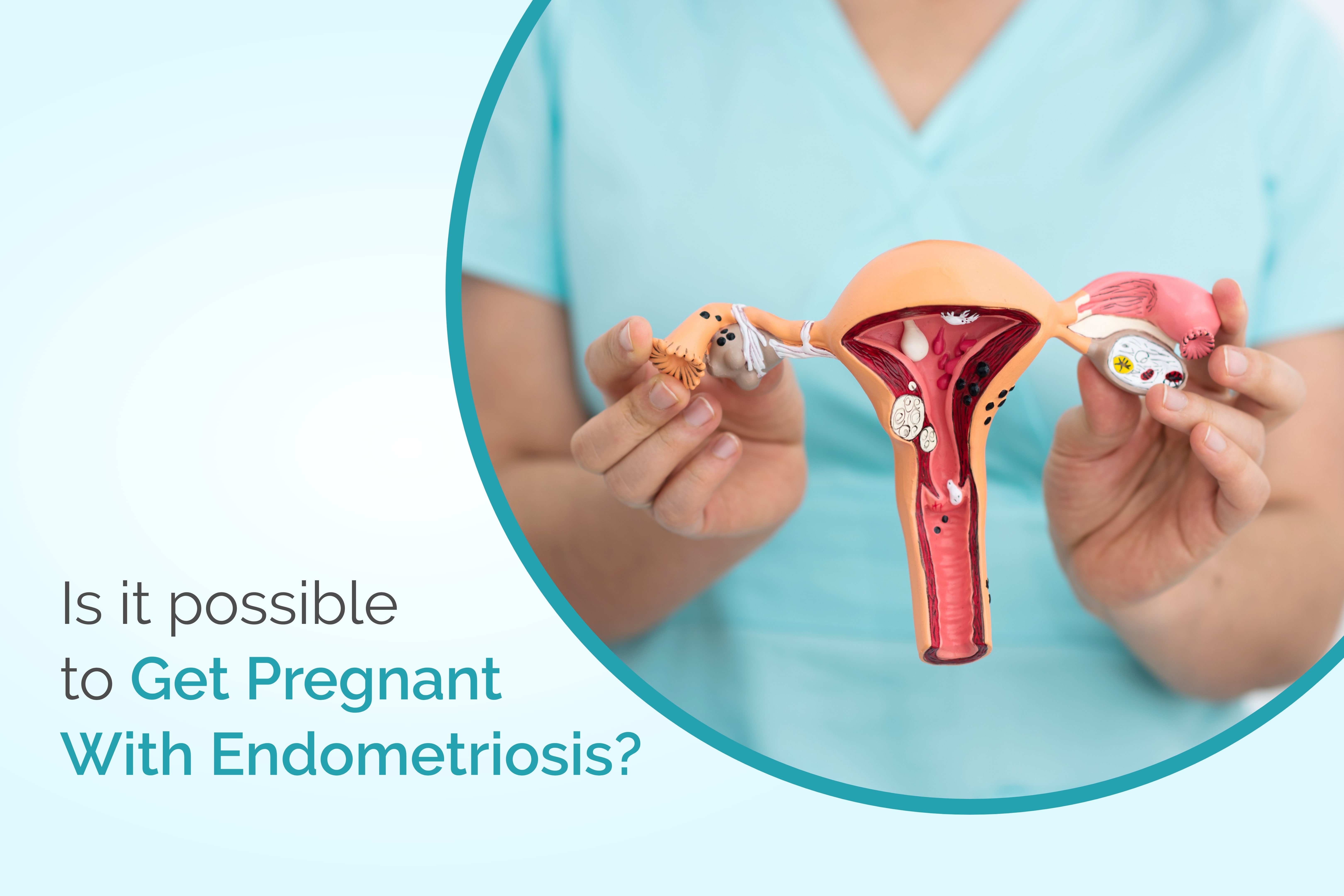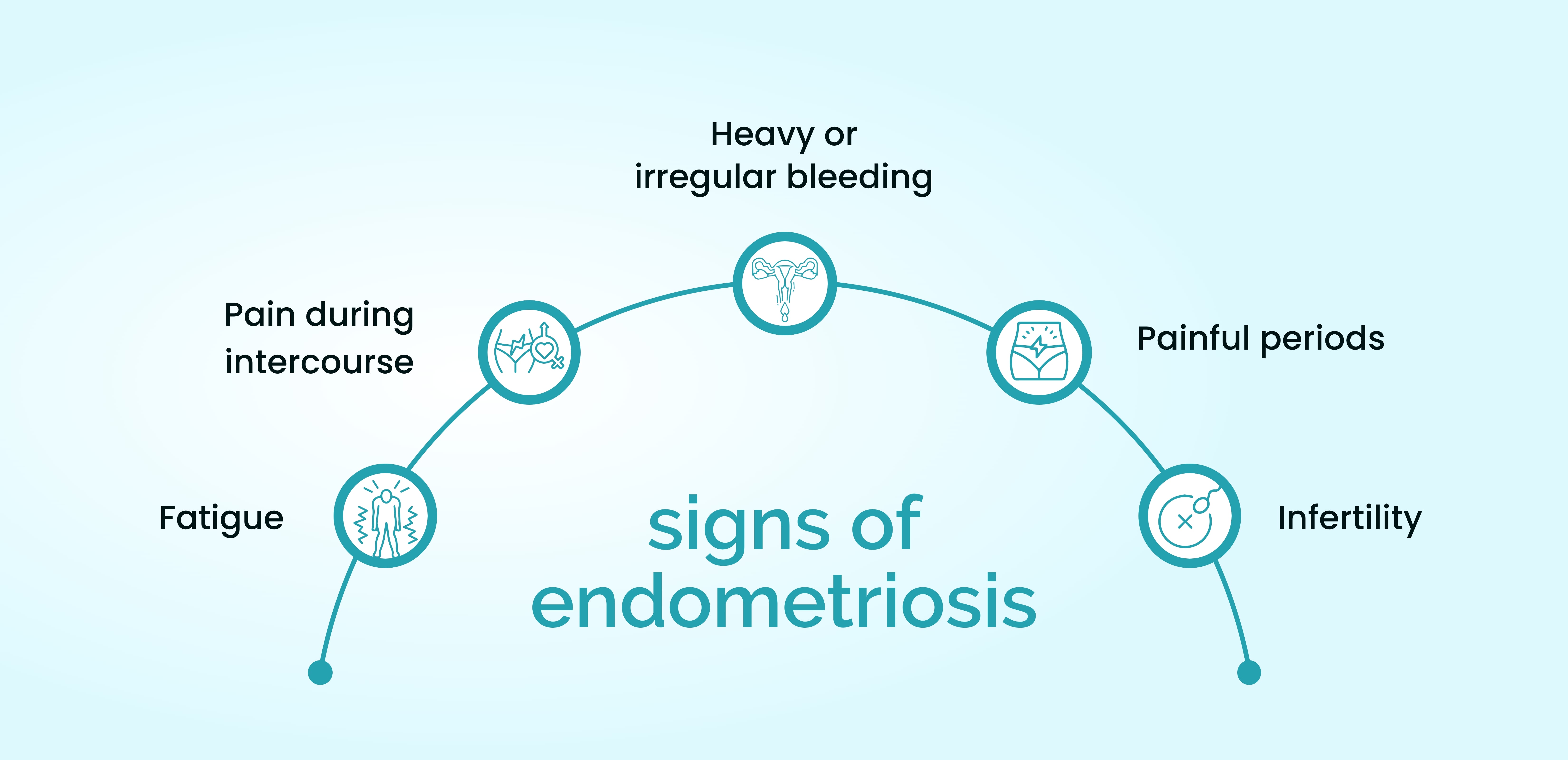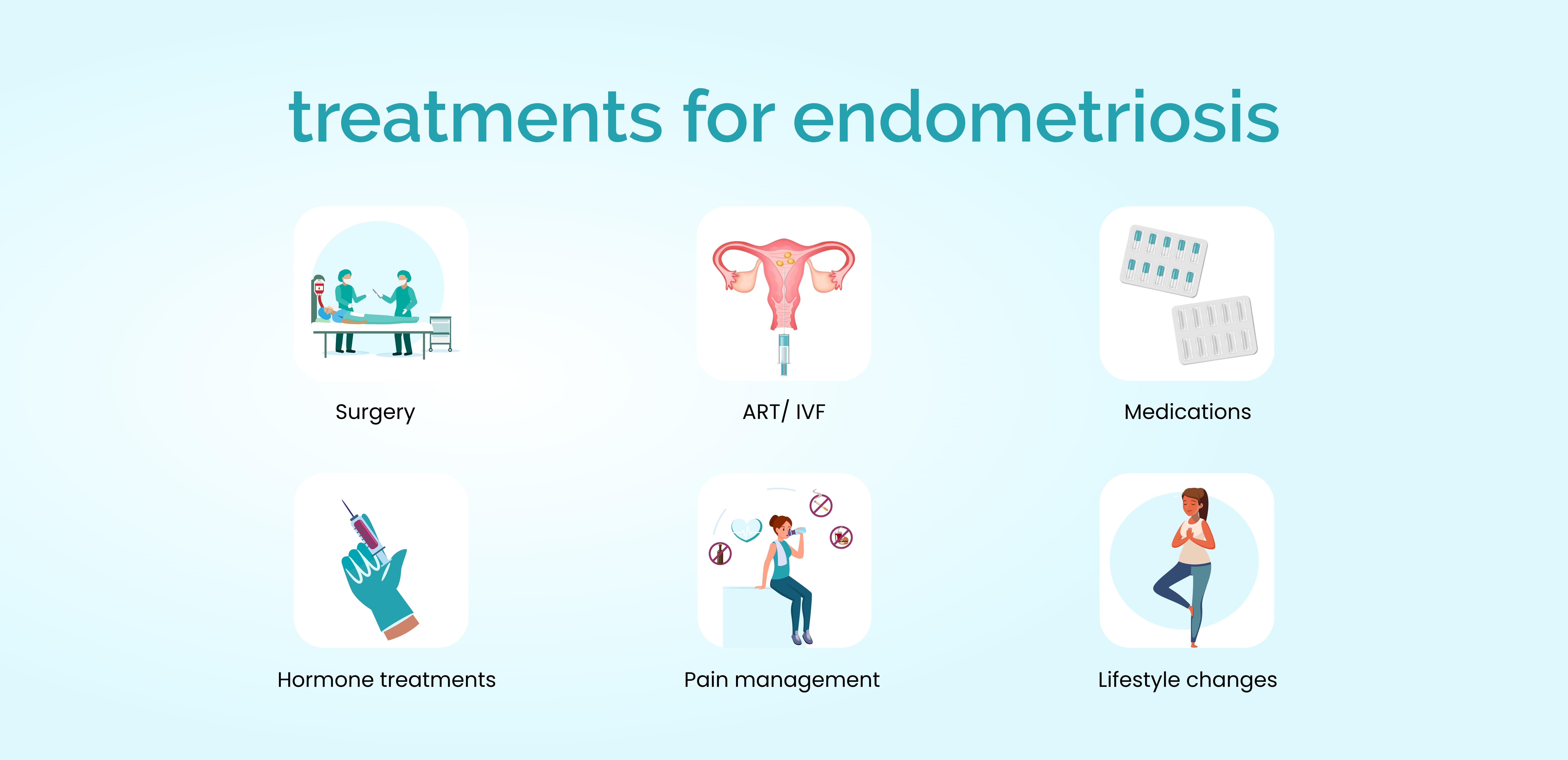
Are you struggling with endometriosis and infertility? You are not alone. Endometriosis is a gynecological condition that affects millions of women worldwide, and it is one of the leading causes of infertility.
A person with endometriosis develops tissue outside of their uterus that has similarities to the uterine lining, causing chronic pain and infertility. If you have endometriosis, the endometrium grows in other places in your body. This can cause pain and make it hard to get pregnant. Treatment for endometriosis depends on how severe it is. For example, if you're trying to get pregnant, you may take birth control pills to stop your period. You may take medicine to stop ovulation when you're not trying to get pregnant.
Despite this condition's challenges, there is hope for women with endometriosis and fertility.
In this blog, we'll explore three reasons and provide valuable insights into how women with endometriosis can improve their chances of conceiving. We'll cover everything you need about endometriosis and fertility, from the latest medical treatments to lifestyle changes. So, if you or someone you know is struggling with endometriosis and infertility, read on for hope and inspiration.
Some ways endometriosis can affect fertility include distorted pelvic anatomy, adhesions, scarring of the fallopian tubes, inflammation of the pelvic area, and the growth of endometrial tissue outside of the uterus. Women with endometriosis have a greater chance of not being able to become pregnant or being infertile.
According to a study by Berube et al. (1998) and Vercellini et al. (2009), the amount of endometriosis seen during laparoscopy predicts future fertility. The exact causes of infertility in women with endometriosis are not fully understood. Still, the condition is associated with anatomical distortions due to adhesions and fibrosis, endocrine imbalances, and altered immune responses.
While not every woman with endometriosis will experience infertility issues, the condition can cause some complications with conception. The excess tissue can affect the functioning of the ovaries, uterus, and fallopian tubes. It can interfere with the implantation of the embryo. Surgical treatment of endometriosis may improve fertility rates. In some cases, other treatments may be recommended depending on the severity of the condition.
The main ways endometriosis affect fertility include:

Endometriosis is caused by endometrial-like tissue growing outside the uterus and can cause severe, chronic pain, abnormal bleeding, and infertility.
Other symptoms can include heavy menstrual cramps, abnormal or heavy menstrual flow, pain during intercourse, and infertility.
In some cases, the symptoms of endometriosis can be confused with other medical conditions. To diagnose endometriosis, your healthcare provider may perform a pelvic exam and imaging tests such as an ultrasound or MRI.
Treatment for endometriosis can include medications, hormone therapy, and surgery. Many women find relief from symptoms with treatment. Take a look at the symptoms below if you're experiencing any of them. In that case, it is important to talk to your healthcare provider about your concerns.

Successful Treatments for endometriosis include: Endometriosis is a common cause of infertility, but several treatment options are available to help women with endometriosis-related infertility.
Despite the challenges of endometriosis, it is possible to get pregnant. However, endometriosis can make it harder to conceive, increasing the risk of pregnancy loss. If you have endometriosis and are thinking about getting pregnant, it is important to talk to our best fertility specialist in Hyderabad, who can help you understand your options and create a right plan for you. Don't wait to seek help. Book a consultation with the best fertility clinic in Hyderabad now, and let us help you on your journey to parenthood.
Your email address will not be published. Required fields are marked *